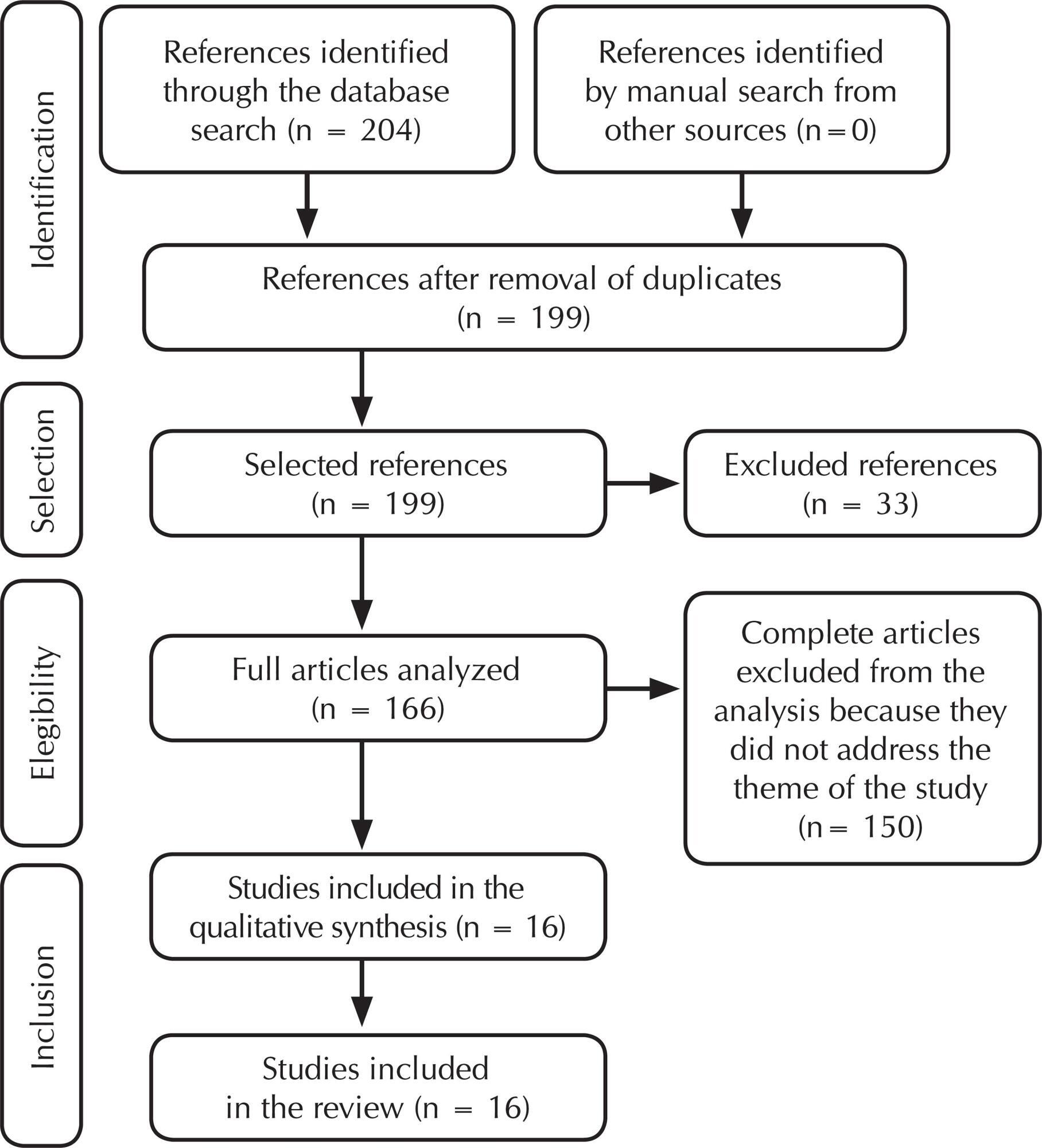-
ORIGINAL ARTICLE
Mothers living with HIV: replacing breastfeeding by infant formula
Revista Brasileira de Enfermagem. 2019;72(5):1153-1160
09-16-2019
Resumo
ORIGINAL ARTICLEMothers living with HIV: replacing breastfeeding by infant formula
Revista Brasileira de Enfermagem. 2019;72(5):1153-1160
09-16-2019DOI 10.1590/0034-7167-2017-0880
Visualizações0Ver maisABSTRACT
Objective:
To explore factors that interact and shape the meaning and experience of mothers of HIV-exposed children in relation to replacing breastfeeding by infant formula.
Method:
A qualitative study was carried out with 23 mothers living with HIV, whose children were up to 18 months of age and under follow-up in a specialized care service. Symbolic Interactionism, semi-structured interviews and content analysis were adopted as theoretical framework.
Results:
The social symbols of breastfeeding, the (un)availability of the milk formula and the (lack of)support of health professionals influenced the mothers’ experience with formula feeding. Social, cultural and economic constraints have proved capable of undermining the conditions necessary for the replacement of breastfeeding.
Final considerations:
The availability of infant formula, access to lactation inhibitor and quality of health services still represent challenges to eradicate new HIV infections in children.
-
REVISÃO
Educational technologies and practices for prevention of vertical HIV transmission
Revista Brasileira de Enfermagem. 2018;71(suppl 4):1759-1767
01-01-2018
Resumo
REVISÃOEducational technologies and practices for prevention of vertical HIV transmission
Revista Brasileira de Enfermagem. 2018;71(suppl 4):1759-1767
01-01-2018DOI 10.1590/0034-7167-2016-0333
Visualizações0Ver maisABSTRACT
Objective:
to assess available evidence on educational technologies and practices for prevention of vertical HIV transmission.
Method:
LILACS, PubMed, Scopus, BDENF, between April and May 2016, with the descriptors: “Vertical Transmission of Infectious Disease”, “HIV”, “Health Education” and “Technology”.
Results:
there are 16 articles published between 2000 and 2014, mostly Brazilian and African, Cross-sectional and with low level of evidence. The studies covered the use of hard technologies, through video, radio and telephone, and soft, emphasizing, in particular, counseling.
Conclusion:
the studies recognize the importance of educational activities as a tool for health promotion in the context of vertical HIV transmission, despite reporting the need for constant training of professionals and urgency in the renewal of educational concepts and practices. Therefore, it is recommended to expand and consolidate health counseling and emphasize the role of nurses as an important actor in this setting.

-
PESQUISA
Prevention of vertical mother-to-child transmission of HIV: care and adhesion provided by couples
Revista Brasileira de Enfermagem. 2016;69(2):275-281
01-01-2016
Resumo
PESQUISAPrevention of vertical mother-to-child transmission of HIV: care and adhesion provided by couples
Revista Brasileira de Enfermagem. 2016;69(2):275-281
01-01-2016DOI 10.1590/0034-7167.2016690210i
Visualizações0ABSTRACT
Objective:
to unveil the existential movement of a couple when performing vertical HIV transmission prophylaxis.
Method:
qualitative research, using Martin Heidegger's phenomenological approach. A phenomenological interview was conducted with 14 participants between December/2011 and February/2012 in the outpatient facilities of an university hospital, Brazil. A comprehensive and interpretative heideggerian analysis was developed.
Results:
the couple understands that they have followed the guidance of the health professionals as indicated. By not being able to breastfeed, the woman did not fail to be a mother, but it was also not a complete experience. The senses of the occupation of the couple-being unfolded to the prophylactic treatment and facticity due to the fact of not breastfeeding.
Conclusion:
we indicate the need to rethink care, proposing a working relationship that transcends the impersonal that dictates about what the couple must deal with, enabling their active participation in care decisions and actions.
Palavras-chave: Child HealthNursingPrenatal CareQualitative ResearchVertical Transmission of Infectious DiseaseVer mais



